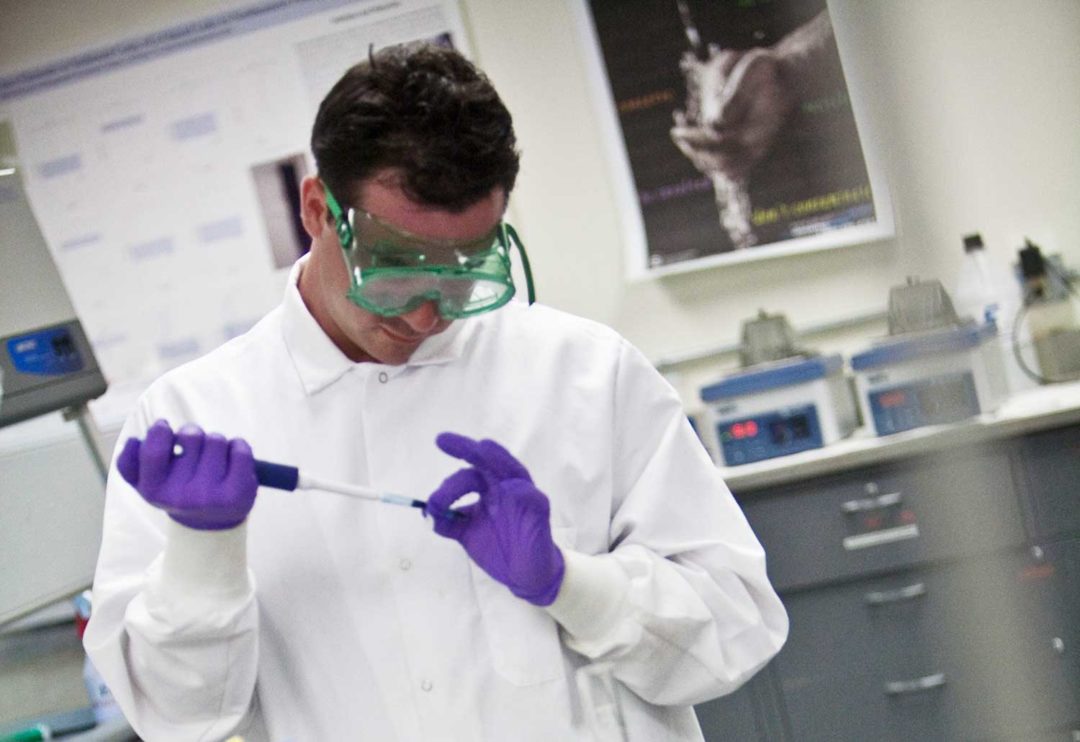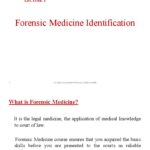The pursuit of a fulfilling and impactful career often begins with a critical juncture: choosing the right academic major. For those captivated by the intricacies of life and the application of science to legal matters, the decision frequently boils down to biology versus forensic science. Both paths promise intellectual stimulation and the potential to contribute meaningfully to society. However, their foci, curricula, and career trajectories diverge significantly. This exploration aims to provide a comprehensive framework for navigating this pivotal choice, illuminating the nuances of each discipline and empowering prospective students to make an informed decision aligned with their aptitudes and aspirations.
Delving into the Depths of Biology: Unveiling the Tapestry of Life
Biology, at its core, is the scientific study of life. It encompasses a vast and intricate landscape, ranging from the molecular mechanisms governing cellular function to the ecological interactions shaping entire ecosystems. A biology major embarks on a journey of discovery, unraveling the fundamental principles that underpin all living organisms. This exploration involves a rigorous curriculum spanning diverse sub-disciplines, including:
- Molecular Biology: Investigating the structure and function of biomolecules, such as DNA, RNA, and proteins, and their roles in cellular processes. Expect to wrestle with concepts like gene expression, protein synthesis, and signal transduction pathways.
- Cell Biology: Exploring the intricate architecture and physiology of cells, the fundamental units of life. Microscopy, cell culture techniques, and the study of organelles become central.
- Genetics: Deciphering the mechanisms of heredity, gene variation, and the role of genes in disease. Mendelian genetics, population genetics, and modern genomics are all crucial components.
- Ecology: Examining the interactions between organisms and their environment, encompassing population dynamics, community structure, and ecosystem function. Fieldwork often complements theoretical knowledge.
- Evolutionary Biology: Tracing the history of life on Earth, exploring the processes of natural selection, adaptation, and speciation. Phylogenetic analysis and the fossil record become invaluable tools.
The breadth of biology provides graduates with a robust foundation for a multitude of career paths. Many pursue advanced degrees in specialized areas, leading to research positions in academia, government, or industry. Others find employment in healthcare, biotechnology, pharmaceuticals, environmental conservation, and science education. A biology degree cultivates critical thinking, problem-solving, and analytical skills, preparing individuals for a diverse range of challenges.
Forensic Science: Bridging Science and the Law
Forensic science represents the application of scientific principles and techniques to legal matters. It is an interdisciplinary field that draws upon various scientific disciplines, including biology, chemistry, physics, and mathematics, to analyze evidence and reconstruct events related to criminal investigations. A forensic science major focuses on developing expertise in the collection, preservation, and analysis of evidence, as well as the interpretation and presentation of scientific findings in a legal context. The curriculum typically encompasses:
- Criminalistics: The examination and analysis of physical evidence, such as fingerprints, firearms, trace evidence, and controlled substances. Proficiency in microscopy, chromatography, and spectroscopy is essential.
- Forensic Biology: The analysis of biological evidence, such as blood, semen, saliva, and hair, for DNA profiling and identification purposes. PCR, DNA sequencing, and statistical analysis are core techniques.
- Forensic Chemistry: The analysis of chemical substances found at crime scenes, including drugs, explosives, and toxins. Gas chromatography-mass spectrometry (GC-MS) and other analytical techniques are crucial.
- Forensic Toxicology: The detection and identification of drugs and poisons in biological samples. Knowledge of pharmacology and metabolism is vital.
- Crime Scene Investigation: The systematic documentation and collection of evidence at crime scenes, ensuring its integrity and admissibility in court. Photography, sketching, and chain of custody procedures are paramount.
A forensic science degree equips graduates with the skills and knowledge necessary to work in crime laboratories, law enforcement agencies, medical examiner’s offices, and private forensic consulting firms. The profession demands meticulous attention to detail, objectivity, and the ability to communicate complex scientific findings clearly and concisely to both technical and non-technical audiences.
Comparative Analysis: Dissecting the Key Differences
While both biology and forensic science involve the application of scientific principles, their distinct emphases shape their respective career trajectories. Biology provides a broader foundation in the life sciences, allowing for greater flexibility in career choices. Forensic science, on the other hand, offers a more specialized and focused training, preparing individuals for specific roles within the criminal justice system.
Consider these key distinctions:
- Scope: Biology encompasses the entire spectrum of life, while forensic science focuses on the application of science to legal matters.
- Curriculum: Biology curricula are typically broader and more theoretical, while forensic science curricula are more applied and practical.
- Career Paths: Biology graduates have a wider range of career options, while forensic science graduates are primarily employed in crime laboratories and related fields.
- Specialization: Biology offers a greater range of specialization options, from molecular biology to ecology, while forensic science specializations are typically within specific areas of forensic analysis.
The Decisive Moment: Aligning Aptitudes with Aspirations
The ultimate decision of whether to major in biology or forensic science hinges on individual interests, aptitudes, and career goals. Aspiring scientists with a broad interest in the life sciences and a desire for flexibility in career choices may find biology to be a more suitable path. Those with a passion for applying science to solve crimes and a strong interest in the legal system may be drawn to forensic science.
Here are some questions to ponder:
- Am I fascinated by the intricacies of life at the molecular, cellular, and organismal levels?
- Do I enjoy conducting research and exploring new scientific frontiers?
- Am I interested in applying scientific principles to solve legal problems?
- Do I possess strong analytical and problem-solving skills?
- Am I comfortable working with sensitive and potentially disturbing evidence?
- Do I have a strong sense of ethics and a commitment to justice?
Careful consideration of these questions, coupled with thorough research into the specific programs offered at different institutions, will empower prospective students to make a well-informed decision that sets them on a path toward a fulfilling and impactful career. The journey of discovery awaits, regardless of the chosen path.










Leave a Comment